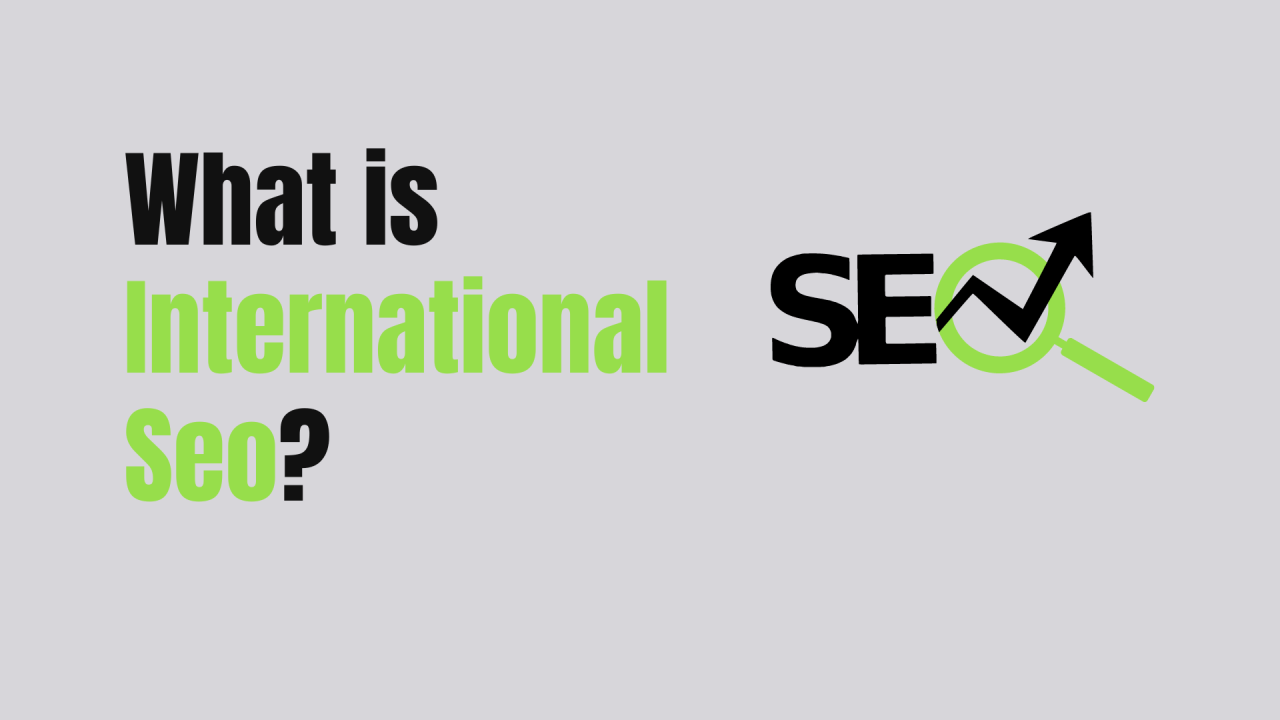Optimizing for the World: Learning International SEO Techniques
Optimizing for the World: Learning International SEO Techniques
Blog Article
Browsing the Digital Landscape: Leveraging International Search Engine Optimization for Cross-Border Success
In today's interconnected electronic globe, companies are increasingly looking past boundaries to take advantage of international markets. Leveraging search engine optimization (SEO) strategies customized for international target markets is vital for achieving cross-border success. The complexity of browsing the electronic landscape on an international scale requires a nuanced technique, from comprehending the principles of International search engine optimization to carrying out geotargeting and multilingual key words approaches. As companies aim to increase their reach and presence throughout different territories, enhancing web site frameworks and keeping track of cross-border performance come to be important components of an effective global search engine optimization strategy.
Recognizing International SEO Principles
Browsing the complexities of international SEO requires a solid grasp of fundamental principles to successfully increase on-line visibility across boundaries. One vital element of global SEO is understanding the relevance of localization.
Furthermore, having a clear understanding of geo-targeting is essential. This entails indicating to online search engine the certain nations or regions a website is targeting. Executing hreflang tags is one way to communicate this info, making sure that the appropriate version of a web page appears in the search results page for a customer in a particular place.
Additionally, comprehending the influence of regional search engines and social media sites platforms is essential for worldwide search engine optimization success. While Google is dominant in lots of regions, nations like China have their own search engines like Baidu, needing tailored methods for each system to optimize on the internet visibility (International SEO).

Targeting Multilingual Search Phrase Strategies
Establishing multilingual key phrase strategies is vital for properly reaching diverse international audiences and optimizing on-line visibility throughout various etymological areas. When targeting multilingual key words techniques, it is crucial to carry out thorough research to comprehend the details search terms and expressions made use of by the target market in each linguistic region. This entails not just converting key words yet additionally considering cultural subtleties, regional dialects, and search fads unique to every target market.
To produce a successful multilingual key phrase approach, it is essential to focus on relevance and search intent. Search phrases need to straighten with the web content on the internet site and resonate with the cultural context of the target audience. Using tools such as Google Key Phrase Planner, SEMrush, or Ahrefs can help determine high-performing search phrases in different languages and analyze their search quantity and competitors level.
Moreover, surveillance and analyzing the performance read this of multilingual keyword phrases regularly is necessary for maximizing and fine-tuning the technique over time. By constantly adjusting to changes in search actions and trends, services can improve their on-line presence and bring in more worldwide website traffic to their web sites.
Executing Geotargeting and Hreflang Tags
When intending to improve worldwide SEO strategies, including geotargeting and hreflang tags is essential for maximizing site visibility across various regions. Geotargeting involves tailoring content to details locations, ensuring that customers in different areas receive relevant information. By executing geotargeting, businesses can enhance their regional search positions and attract region-specific website traffic.

Optimizing Internet Site Framework for Worldwide Visibility
To even more enhance global SEO techniques past geotargeting and hreflang tags, maximizing the internet site framework is imperative for achieving worldwide exposure and making the most of reach throughout different areas. A well-structured site not just improves customer experience however also facilitates search engine spiders in understanding the material and context of the website.
Moreover, developing language-specific subdirectories or subdomains can aid online search engine deliver the best variation of the website to customers based on their language preferences, better improving the overall customer experience. Additionally, enhancing link frameworks to consist of appropriate keyword phrases and geotargeted terms can improve the website's presence in various regions. By structuring the site properly for worldwide target markets, businesses can enhance their opportunities of bring in global website traffic and expanding their resource reach across borders.

Monitoring and Examining Cross-Border Efficiency
Reliable monitoring and studying of cross-border performance is necessary for reviewing the success of worldwide SEO approaches and recognizing opportunities for enhancement in international reach and presence. By very closely tracking key performance indications (KPIs) across different markets, organizations can gain beneficial insights into the effectiveness of their cross-border SEO initiatives. Keeping track of metrics such as natural website traffic, keyword rankings, conversion rates, and bounce rates can supply an extensive view of how well an internet site is executing in various areas.
Analyzing cross-border performance information enables businesses to determine fads, patterns, and locations for optimization. By contrasting performance across various countries, areas, or languages, firms can identify successful strategies and localize web content to much better provide to certain target audiences. Additionally, monitoring cross-border efficiency allows businesses to stay active and responsive in the ever-evolving electronic landscape. Routine analysis of search engine optimization efficiency on a worldwide range ensures that business can adjust their methods swiftly to maximize emerging chances and maintain a competitive edge in global markets.
Conclusion
To conclude, global search engine optimization plays a critical role in accomplishing cross-border success by maximizing web sites for global exposure, targeting multilingual keyword approaches, applying geotargeting and hreflang tags, and keeping track of cross-border performance. By recognizing the fundamentals of global SEO and websites enhancing website frameworks appropriately, services can successfully get to and involve with their target market throughout various areas and languages. This calculated strategy is necessary for expanding market reach and driving online development in today's electronic landscape.
Report this page